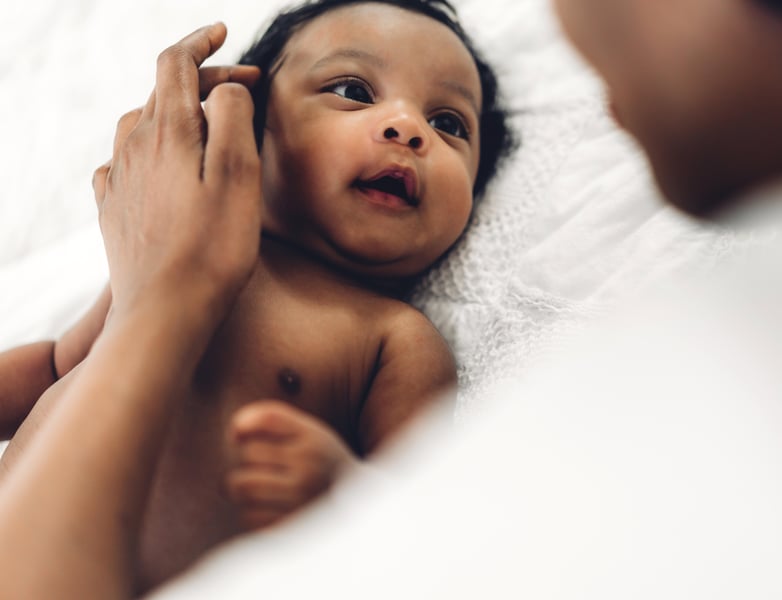Get Healthy!

- Posted October 19, 2022
Black Babies Born Through Fertility Treatments Face Worse Survival Than White Infants: Study
It's well known that Black women in the United States have an increased risk of childbirth complications. Now, a large new study finds even larger racial disparities when women conceive through infertility treatments.
Researchers found that among U.S. women who'd undergone various infertility treatments, Black women had a substantially higher risk of losing their baby soon before or after birth, compared to white women.
That risk was also elevated, though to a lesser degree, among Hispanic and Asian women.
Overall, relatively few women lost their baby. But the risk was three to four times higher for Black mothers, versus white women.
In fact, racial disparities were greater among women who conceived through infertility treatment than among those who conceived naturally.
"That was a surprise to us," said lead researcher Dr. Sarka Lisonkova, of the University of British Columbia and Children's and Women's Health Center in Vancouver, Canada.
That's because, on average, U.S. women who undergo infertility treatment are more likely to be married, college-educated and have good access to prenatal care compared to the general population.
For now, Lisonkova said, the specific reasons for the findings are unclear.
But the results should be a "red flag," she said, for doctors who care for women undergoing infertility treatment.
The study -- published Oct. 19 in Pediatrics "” adds to evidence of longstanding racial disparities in pregnancy outcomes in the United States.
Research shows that, on average, Black women are two to three times more likely than white women to die of pregnancy-related causes. Similarly, their infants are over twice as likely to be born preterm or underweight, or to die in the first year of life.
"Those baseline disparities are well-known," said Dr. Gloria Richard-Davis, a reproductive endocrinologist with the University of Arkansas for Medical Sciences in Little Rock.
On top of that, when Black women have difficulty conceiving, they are less likely to receive timely care -- which could dim the chances of conceiving at all, or having a good pregnancy outcome.
"We know Black women enter fertility care later, at an older age," said Richard-Davis, who also heads the Diversity, Equity and Inclusion Committee for the American Society for Reproductive Medicine.
Experts say the reasons that Black women, overall, have poorer pregnancy outcomes go deep: They are embedded in broader social disparities and structural racism, with Black women dealing with more obstacles in accessing such fundamentals as affordable housing, healthy food, transportation and good prenatal care.
The daily stressors Black women face can also chip away at their health, Richard-Davis said. Meanwhile, health care providers may not listen to their concerns -- including those around their newborn's health.
"It doesn't help if patients are advocating for themselves, but we're not listening," Richard-Davis said.
She was not surprised that disparities were clear among women undergoing fertility treatment, despite the fact that those women have certain advantages, like higher education levels.
"You can't educate yourself out of racism," Richard-Davis said.
For their study, Lisonkova's team analyzed data on all singleton births in the United States between 2016 and 2017 -- more than 7.5 million in all. That included more than 93,000 infants conceived via some type of infertility treatment, such as fertility drugs, artificial insemination or in-vitro fertilization.
In that group, just over 3% of Black women lost their baby shortly before or after birth -- what doctors call perinatal death. That rate was higher compared with white women, at 0.9%, and also higher than the rate among Black women who had conceived naturally, at 1.5%.
Lisonkova's team accounted for all of the other factors they could -- such as mothers' access to prenatal care, and pre-pregnancy conditions like obesity, diabetes and high blood pressure.
Even then, the racial gap among women who'd undergone infertility treatment persisted: Black women were three times more likely to lose their baby compared to white women.
Hispanic and Asian women were also at increased risk of perinatal death, with a 40% to 90% higher risk than white women.
Both doctors noted that the causes of women's infertility were unknown, and those causes might help explain the disparities. For example, uterine fibroids are far more common among Black women, and fibroids raise the risk of preterm delivery.
One part of the solution, Richard-Davis said, is improving health care providers' awareness of health inequities and the causes -- including their own role.
"We all have our own biases," she said, "and we bring them into the exam room with us."
More information
The March of Dimes has more on fertility treatments.




